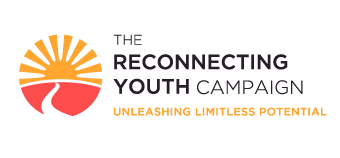As Congress works to finalize its FY25 appropriations, we are urging them to invest in young people and our communities.
As a coalition of national organizations that work to support opportunity youth, RYC is urging Congress to pass a final Fiscal Year (FY) 2025 appropriations bill by the end of the year that robustly invests in federal programs that reconnect opportunity youth to the education and workforce system, enabling them to pursue careers that allow them to support themselves and their families and contribute to their communities.

The Honorable Charles Schumer
Senate Majority Leader
322 Hart Senate Office Building
Washington, D.C. 20510
The Honorable Mitch McConnell
Senate Minority Leader
317 Russell Senate Office Building
Washington, D.C. 20510
The Honorable Patty Murray
Chair, Senate Committee on Appropriations
154 Russell Senate Office Building
Washington, D.C. 20510
The Honorable Susan Collins
Vice Chair, Senate Committee on Appropriations
413 Dirksen Senate Office Building
Washington, D.C. 20510
The Honorable Mike Johnson
Speaker of the House
568 Cannon House Office Building
Washington, DC 20515
The Honorable Hakeem Jeffries
House Minority Leader
2433 Rayburn House Office Building
Washington, DC 20515
The Honorable Tom Cole
Chair, House Committee on Appropriations
2207 Rayburn House Office Building
Washington, DC 20515
The Honorable Rosa DeLauro
Ranking Member, House Committee on Appropriations
2413 Rayburn House Office Building
Washington, DC 20515
Dear Leader Schumer, Speaker Johnson, Minority Leaders McConnell and Jeffries, Chairs Murray and Cole, Vice Chair Collins, and Ranking Member DeLauro:
As a coalition of national organizations that work to support opportunity youth, we urge you to pass a final Fiscal Year (FY) 2025 appropriations bill by the end of the year that robustly invests in federal programs that reconnect opportunity youth to the education and workforce system, enabling them to pursue careers that allow them to support themselves and their families and contribute to their communities.
Opportunity Youth, defined as young people ages 16-24 out of school and out of work, are in every community across the United States. Measure of America recently released it’s report, ‘Broad Recovery, Persistent Inequity’ in which they present 2022 youth disconnection rates and highlights how the COVID-19 pandemic created sharp upward spikes in youth disconnection within all states. In Louisiana, 17.7% of young people ages 16-24 are disconnected, for a total of 96,000 opportunity youth in Louisiana; 17,950 of those you reside in the Louisiana’s fourth district. In New York, 12.9% of young people ages 16-24 are disconnected, for a total of 285,900 opportunity youth in New York. Research shows that being disconnected as a young person has long-term consequences; it’s associated with lower earnings, less education, worse health, and even less happiness in later adulthood.
Every young person needs support to succeed, from financial assistance, to mentorship, to access to essential needs such as housing, food, and dependable transportation. Opportunity youth are no different, but they face additional unique barriers. Opportunity youth include young people who are disabled, are parents, have experienced homelessness, have been impacted by the juvenile justice system, and have been involved in the foster care system. Despite the steep climb that many opportunity youth face, they are eager to pursue the American Dream and build a better life for themselves, their families, and their communities.
Investing in opportunity youth has a significant economic benefit – a 2018 Measure of America and Schultz Family Foundation report estimated that the federal government would gain, on average, $11,900 per year in additional tax revenue per connected young adult. The federal government would gain an estimated $56 billion in tax revenue if all opportunity youth were reconnected. Despite this, federal funding for programs aimed at supporting opportunity youth has significantly decreased over the past few decades. Only an estimated 7% of opportunity youth are currently supported by federal programs, indicating their limited range. By investing in the following federal programs and including the recommended report language, we can dramatically reduce youth disconnection in the United States, which will strengthen local communities and economies.
We, the undersigned organizations, offer the following recommendations to close the youth disconnection gap and provide more economic mobility and opportunity for our nation’s young people:
Department of Labor
Report Language: “The Committee directs the Secretary of Labor, under its demonstration authority under section 169 of WIOA, to make competitive grants for the provision of subsidized summer and year-round employment opportunities as described in section 129 of WIOA. Such grants shall target opportunity youth or justice-involved youth and serve high poverty areas.”
$1.14 billion for WIOA Youth Training: The WIOA Youth Training program provides young people who are out of school and face barriers to employment with industry-relevant skills, education, and training. The most recent program year data show that 73.7% of participants were employed in the fourth quarter after exiting a program.
$342 million for Apprenticeship Programs: Apprenticeships combine paid on-the-job training with classroom instruction to prepare workers for highly skilled careers, while also helping employers recruit, build, and retain a highly skilled workforce.
$126 million for YouthBuild: YouthBuild is a community-based pre-apprenticeship program that provides job training and educational services for opportunity youth ages 16-24 who left school without a secondary diploma. Participants learn vocational skills in construction and in other in-demand industries including healthcare, information technology, and hospitality.
$2.11 billion for Job Corps: Job Corps provides free residential career training and educational programs, along with crucial basic needs such as housing, food, and medical care to low-income young adults, giving them the skills and the wrap-around care they need to attain good-paying jobs.
$138 million for Reentry Employment Opportunities: An increase in these funds will continue to provide funding towards community-based re-entry programs for justice-involved young adults who are currently or formerly incarcerated. These highly effective programs will continue to help more individuals overcome systemic barriers that formerly incarcerated young people face.
Department of Education
$810 million for Adult Education State Grants: Adult education programs provide learners with crucial life and work skills, including literacy, numeracy, digital literacy, and soft skills, to get them into well-paying jobs or on to postsecondary education.
$155 million for Education for Homeless Children and Youth: Continued investment in this program is necessary to ensure homeless youth have access to high-quality education.
AmeriCorps
$804.92 million for AmeriCorps State and National: An increase in these funds will allow AmeriCorps to continue its effective service models that respond to local and state needs across the country.
$45 million for National Civilian Community Corps: The NCCC provides participants team-building and professional experience while supporting crucial natural disaster response and prevention, building affordable housing, and supporting communities that are vulnerable to natural disasters.
$211 million for the National Service Trust: The National Service Trust ensures that there is funding for Segal AmeriCorps Education Awards, which participants can use to repay qualified student loans and/or to pay current educational expenses at eligible institutions of higher education and training programs.
These recommendations will help reconnect the 4.3 million opportunity youth in the United States to high-quality education and training opportunities, bolstering local economies, and strengthening our nation’s workforce. Thank you for considering this request.
Sincerely,
The National Youth Employment Coalition
The Corps Network
National Collaborative for Transformative Youth Policy (TYP Collaborative)
The Forum for Youth Investment
YouthBuild Global
Young Invincibles
Jobs for the Future (JFF)
American Association of People with Disabilities
American Muslim Health Professionals
Arizona Center for Youth Resources
Aspen Institute Forum for Community Solutions
Aspen Institute: Forum for Community Solutions
CA Opportunity Youth Network (COYN)
Childen’s Funding Project
Children’s Defense Fund
Civicorps
Closeknit
Coalition
Coalition on Human Needs
Cradle to Career Partnership anchored at United Way of Tucson and Southern Arizona
Drug Policy Alliance
Forge City Works
iFoster
Institute for Educational Leadership
Justice and Joy National Collaborative (formerly National Crittenton)
Juvenile Law Center
Larkin Street Youth Services
LLOTC Little Listeners of the Carolina’s
Lone Star Justice Alliance
MAGIC Charities Foundation
MCHS Family of Services
MENTOR
Milwaukee Christian Center
NASW – ME Chapter
NASW NH & NASW VT
National Association of Counsel for Children
National Association of Social Workers – Kentucky Chapter
National Association of Social Workers – Louisiana Chapter
National Association of Social Workers – Michigan Chapter
National Association of Social Workers – Texas Chapter
National Association of Social Workers (NASW)
National Association of Social Workers Ohio Chapter
National Association of Social Workers-Mississippi Chapter
New Orleans Career Center
New Orleans Career Center
New Ways to Work, Inc
Open Doors Academy
Opportunity Youth United
Partners In Development Foundation
Philadelphia Youth Network
Phipps Neighborhoods
Public Advocacy for Kids (PAK)
Rights4Girls
Sea Haven For Youth Inc
Search Institute
Success Centers
The Gault Center
Urban Strategies Council
We The People United For Change Inc
Wenatchee Valley YMCA
WZA CONSULTING
Youth First Justice Collaborative
Youth Oasis
Youth Villages
YouthBuild NYC Collaborative







